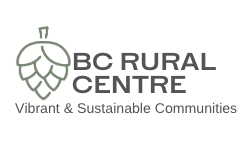
BC’s First Provincial Urban, Rural and Northern Indigenous Housing Strategy
British Columbia’s First Provincial Urban, Rural and Northern Indigenous Housing Strategy: Virtual Community Engagement Series
In January 2022, The Aboriginal Housing Management Association (AHMA) released British Columbia’s first Provincial Urban-Rural and Northern Indigenous Housing Strategy. To continue raising awareness and gathering support from communities across B.C. AHMA will be hosting various community engagement sessions in late spring 2022.
AHMA invites all levels of Government, municipalities, and communities in British Columbia to attend
the upcoming events. Sessions will be held throughout the Province in AHMA’s 6 member regions:
Northern, Cariboo Chilcotin Coast, Thompson Okanagan & Kootenay Rockies, Vancouver Island,
Vancouver Coastal and Fraser Valley.
AHMA’s historic strategy is a powerful step forward in claiming and protecting the social, economic, and
Indigenous housing rights of all urban, rural, and northern Indigenous Peoples in British Columbia. The
Provincial Indigenous-led strategy represents a new chapter in Canadian History. “Indigenous human
rights are the biggest political, economic, and social shift Canada will see in this lifetime. AHMA and our
members have been leading the advancement of Indigenous Housing rights for over 25 years.” said
Margaret Pfoh, Chief Executive Officer at AHMA.
More information regarding the event will be released in the coming weeks.
To learn more about how you and your community can pledge support for AHMA’s strategy, check out the endorsement page on AHMA’s website. http://www.ahma-bc.org/how-to-support
Media Contact:
AHMA Communications Manager, Laurie Brownrigg
email: lbrownrigg@ahma-bc.org
Background
The Provincial Urban-Rural and Northern Indigenous Housing Strategy is part of AHMA’s long-term vision to provide culturally safe, secure, and affordable housing to all Indigenous Peoples in British Columbia. The strategy was developed after a year of in-depth consultation with Indigenous organizations, community members, housing, and service providers. An Indigenous Advisory Council guided the entire process, providing expert advice and traditional Indigenous knowledge to ensure the strategy responds adequately to the unique needs of Indigenous Peoples.
